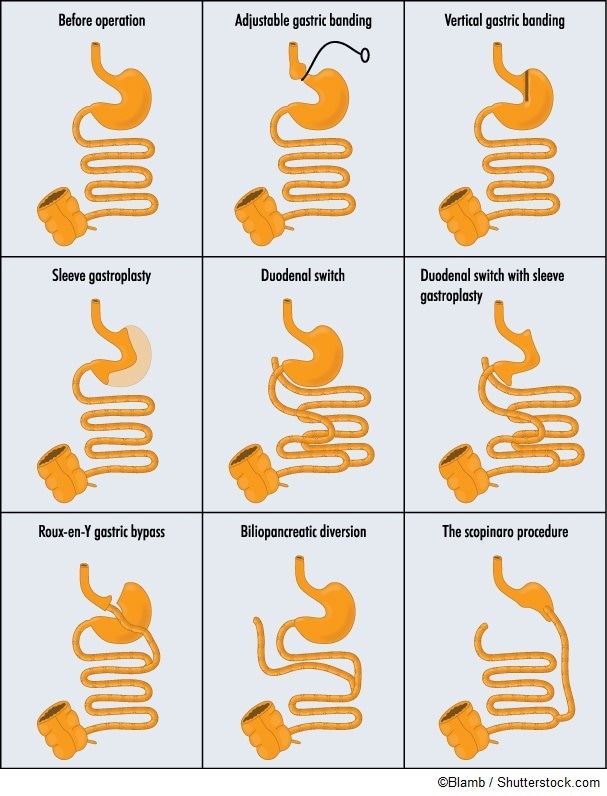A gastrectomy is a surgical procedure carried out to remove all or part of the stomach. It may be used to treat stomach cancer, esophageal cancer, severe or morbid obesity, peptic ulcers or benign tumors.

Depending on which part of the stomach needs removing, one of four different types of gastrectomy is used. The different types of gastrectomy are described in more detail below.
Types of gastrectomy
Here, an incision is made in the abdomen, through which surgical instruments are passed in order to access and remove the lower half of the stomach. In the case of stomach cancer, nearby lymph nodes are often also removed, since the cancer could spread to these. The remaining upper portion of the stomach is then connected to the small intestine.
Total gastrectomy is the removal of the entire stomach, via an incision made in the abdomen. The esophagus is then connected to the small intestine.
This procedure involves removal of around 80% of the stomach, usually by keyhole surgery. A banana-shaped tube or sleeve is left behind as the new stomach, which is positioned upwards and sealed using stitches. The new stomach, which only has a capacity of 100 to 200mL, significantly reduces the amount of food a person needs to eat in order to feel full.
Here, the upper segment of the stomach is removed, along with a portion of the esophagus. The remaining lower section of the stomach is pulled upwards and connected to the remaining esophagus.
Techniques
Gastrectomy may be performed using either open surgery or keyhole surgery. In an open gastrectomy, the procedure is carried out after making a large incision in the chest or abdomen, whereas keyhole surgery only requires small incisions.
Each type of surgery, not only those mentioned here, is associated with various advantages and disadvantages. It is therefore necessary for patients to discuss the advantages and disadvantages of each procedure with their surgeon before deciding which option is most suitable.
With keyhole surgery, patient recovery time is usually faster, post-operative pain is generally less, and hospital stay is often slightly shorter than with open surgery. Keyhole surgery also requires a specialist surgeon with advanced training in the use of certain equipment and the surgery can take longer than open surgery.
The open surgery is generally more successful at treating cancer than keyhole surgery is, since lymph node removal is more easily achieved. The risk of post-operative complications is similar for the two types of surgery.
Further Reading
Last Updated: Dec 29, 2022